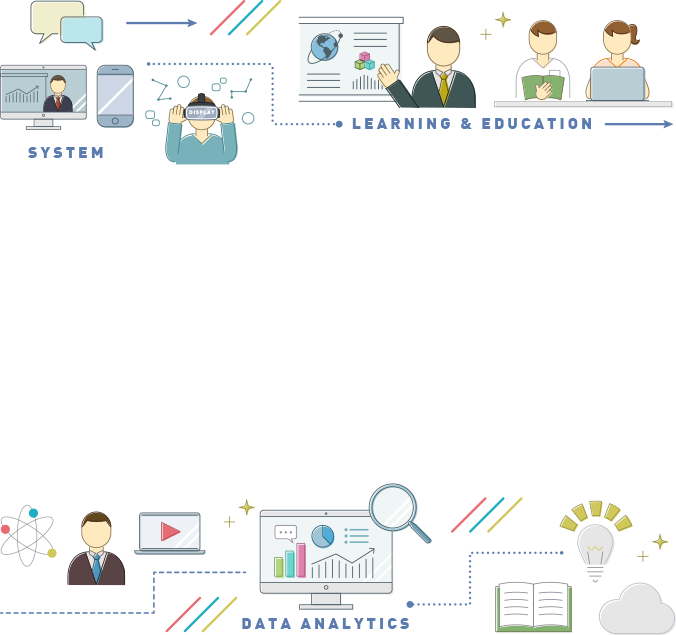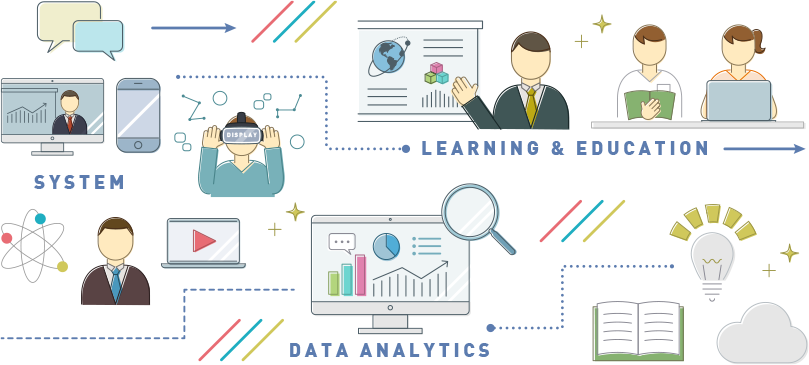Before Corona, we conducted a research on classroom practicing learning analytics at a high school in Fukuoka City, analyzing the collected logs and finding learning strategies based on the learning behavior patterns. The paper on the practice is accepted by the journal Research and Practice in Technology Enhanced Learning (RPTEL)! First of all, we would like to thank the reviewers and the professors who worked on this paper. Thank you very much.
This is the second phase of SIP, and in collaboration with Dr. Ogata(Kyoto University) and Dr. Shimada(our university). Our student, Mr. Xue, did a great job! He did a great job although he was on the busy schedule because of his doctoral thesis! Excellent work! Congratulations!
Geng, X., Chen, L., Xu, Y., Ogata, H., Shimada, A. and Yamada, M. (2024). Learning behavioral patterns of students with varying performance in a high school mathematics course using an e-book system, Research and Practice in Technology Enhanced Learning, 19(11), https://doi.org/10.58459/rptel.2024.19011
In high school mathematics, the students were divided into three groups (a rising group, a falling group, and an unchanging group). From overall data, we found a rehearsal strategy and a learning strategy to connect various concepts , but when we analyzed the groups separately, we found a learning strategy to integrate various pieces of information in the rising group. In the other groups, we did not see such learning strategies, and in some cases, the learning strategies focused on a single learning function such as markers and used them repeatedly, which did not form a continuum as a learning behavior. I think the results are quite interesting.
In the field of learning analytics research in elementary and secondary education in Japan, other than Dr. Ogata’s team, Tohoku University’s Dr. Hotta’s team and Kyushu University’s team are the only researchers who have conducted learning analytics research at a very fine granular level, such as with digital textbooks, but I think it is very important to present these findings and explore how to design and improve classes using learning data.
It has been a few years since the GIGA School (national policy for “one device for each student in K-8”) was started, and most of schools still only utilize it for presenting educational materials, quizzes, and other test presentations. I think we need to think about the next step after that. I hope that our findings will be well utilized and encourage discussion on the above issue.







